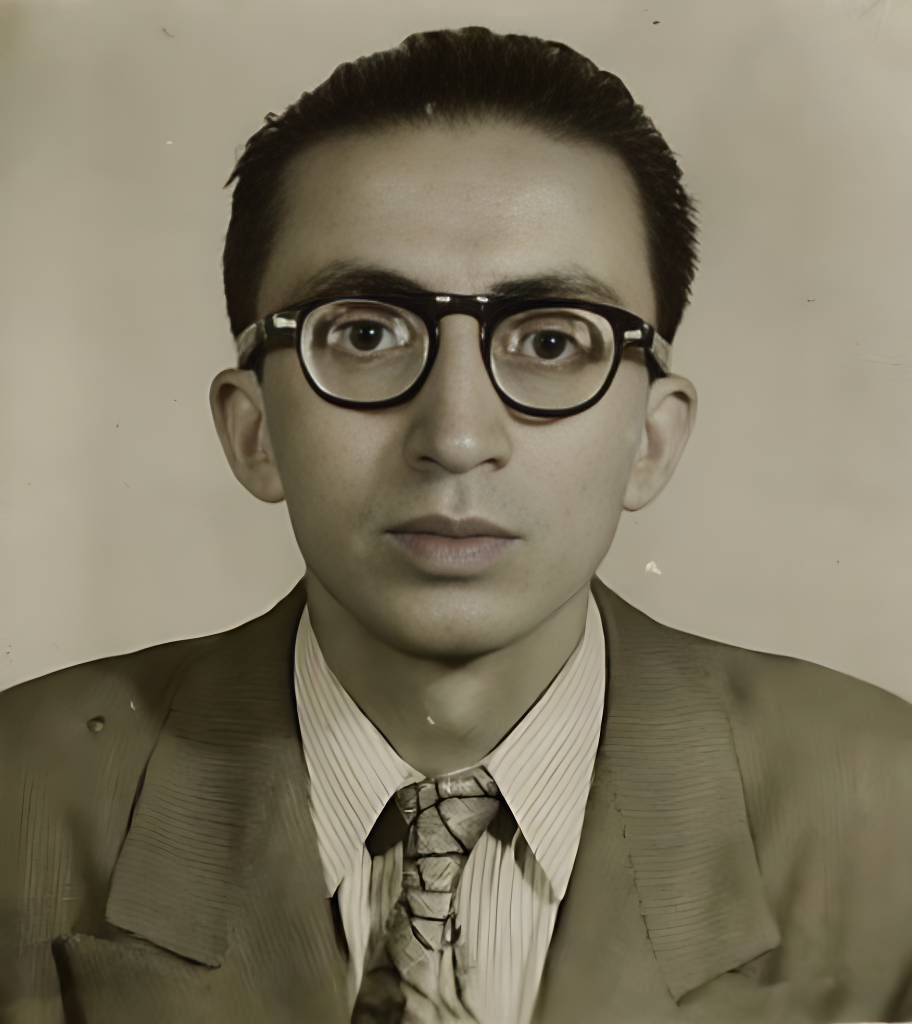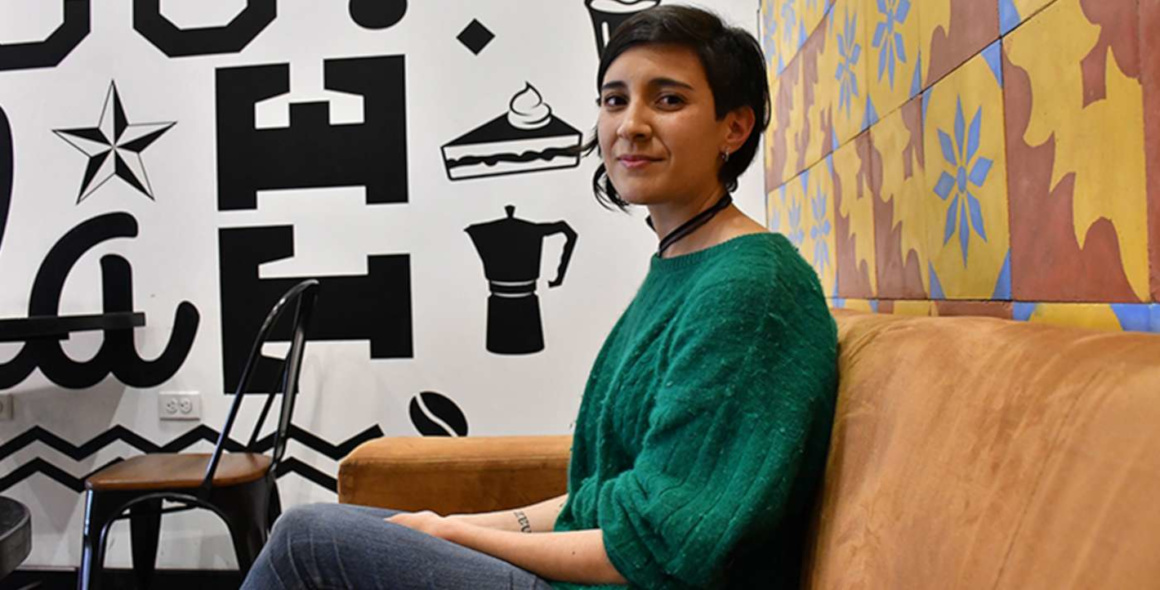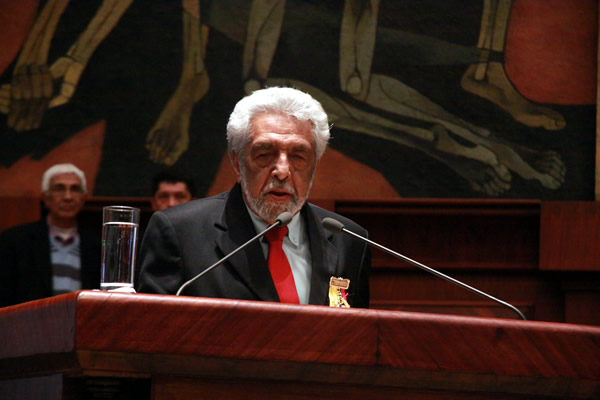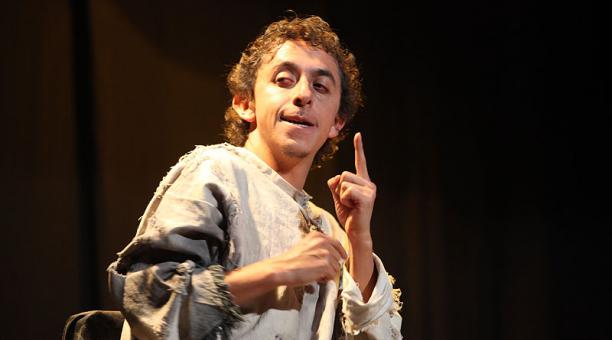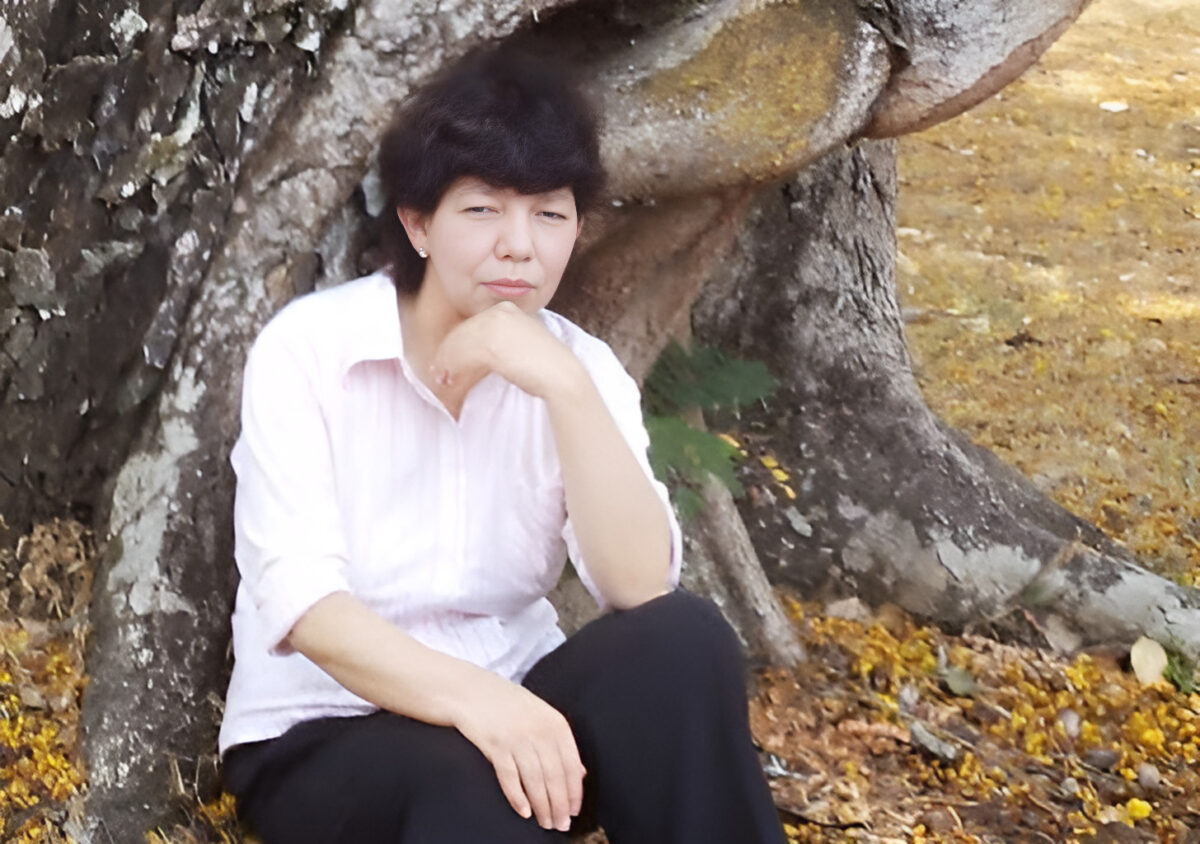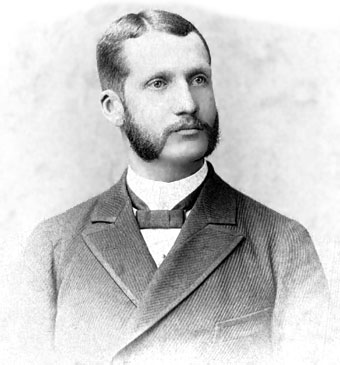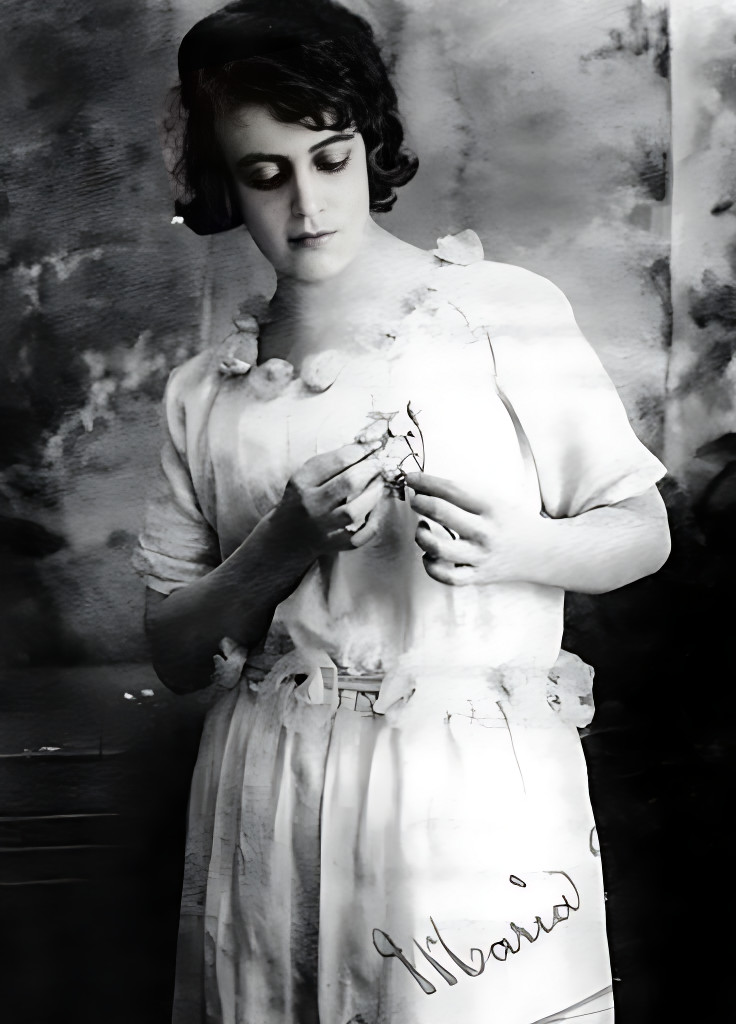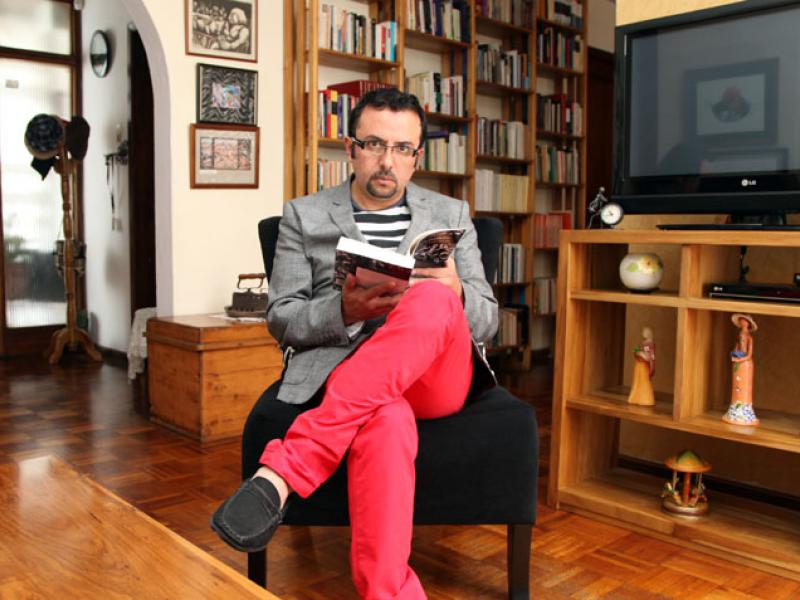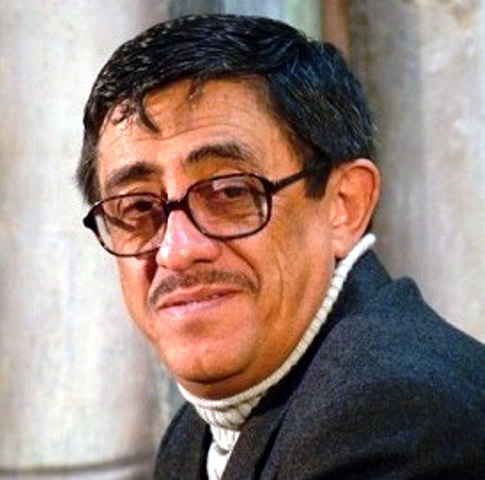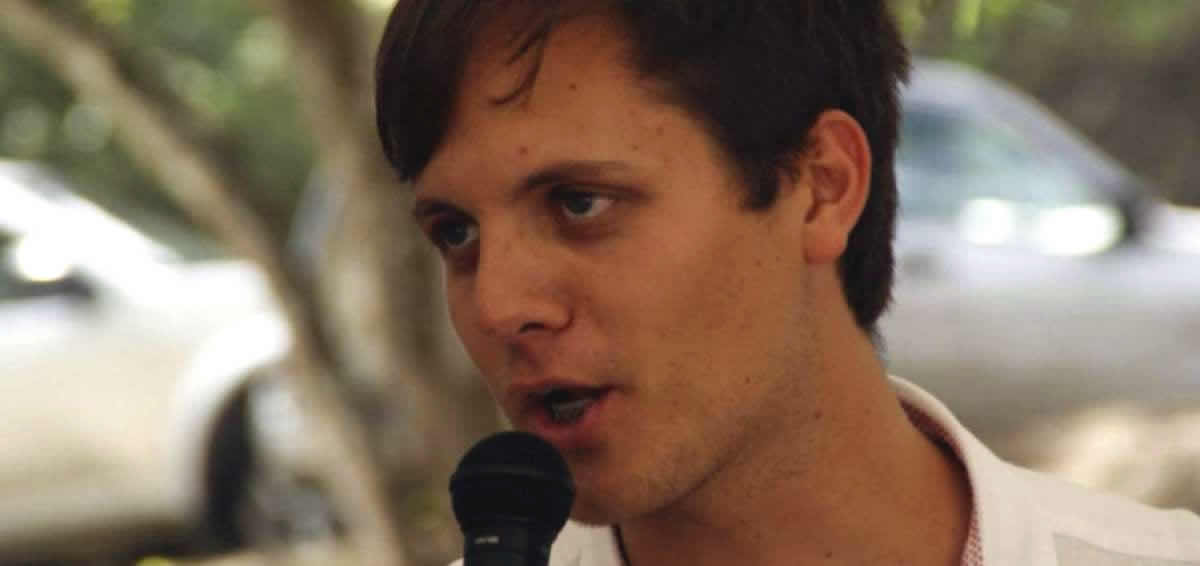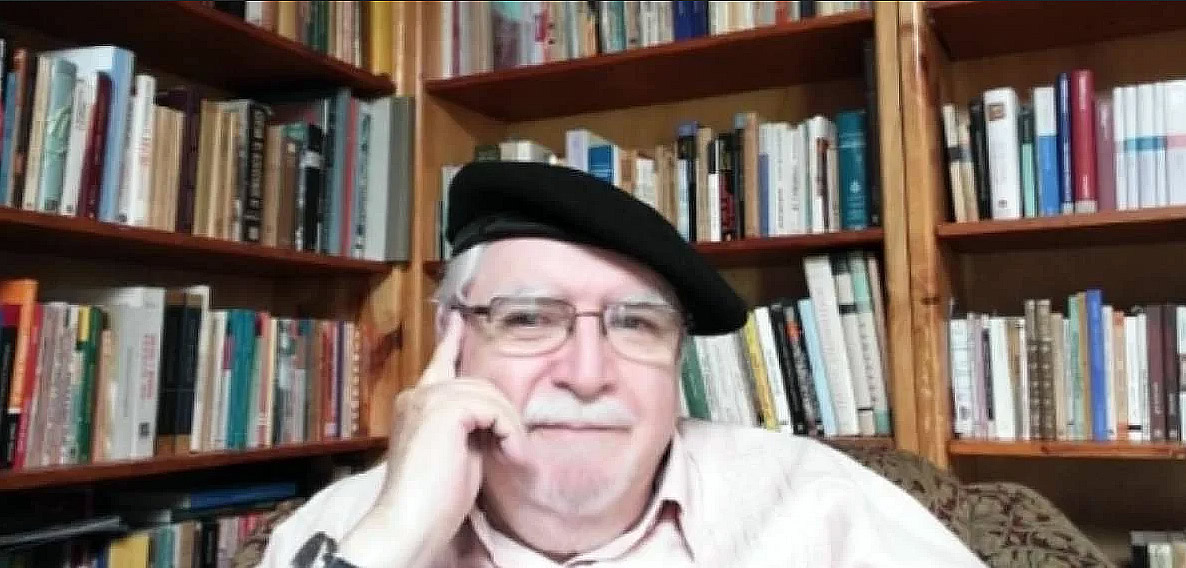César Dávila Andrade (Cuenca, Ecuador, October 5, 1918 – Caracas, Venezuela, May 2, 1967) was an Ecuadorian poet, writer and essayist, usually acclaimed as an outstanding member of the 1940 Madrugada Group. His interest in the strange and marvelous earned him the sobriquet,“el Fakir.” He is best known for his poetry, although he also wrote short novels, stories, essays and numerous newspaper articles. His works displayed elements of Neo-romanticism and surrealism. His best known poem, “Boletín y elegía de las mitas,” originally published in 1959, marked a milestone in Ecuadorian and Latin American literature. He spent much of his life in Caracas, Venezuela where he worked in the editorial staff of Zona Franca. For several years he served as cultural attaché at the Ecuadorian embassy. Death and transfiguration was a theme in his poems. In 1967, he committed suicide at the age of 48.
Continue reading “César Dávila Andrade”Category: Writers from Cuenca
Natalia García Freire
Natalia García Freire (Cuenca, 1991) is an Ecuadorian journalist and writer. As a freelance writer her articles have been published in Univisión, El Hoy, Plan V Magazine, El Mercurio, CityLab Latino and BG Magazine. In 2019, Jorge Carrion of the New York Times included García’s debut novel “Nuestra piel muerta” in his article of the best Spanish-language books of the year. García currently lives in Madrid, Spain.
Continue reading “Natalia García Freire”Jaime Galarza Zavala
Jaime Alejandro Galarza Zavala (Cuenca, July 28, 1930 – Quito, July 20, 2023) was an Ecuadorian writer, poet, journalist, and politician. He was a prominent advocate for social justice and national sovereignty, publishing over 20 books, including El Yugo Feudal and El Festín del Petróleo, which exposed corruption in Ecuador’s oil industry. Galarza also authored Quienes mataron a Roldós, investigating the controversial death of Ecuadorian President Jaime Roldós. Deeply involved in political activism, he co-founded the revolutionary youth movement URJE and served as Ecuador’s first Minister of the Environment. His work garnered international attention and led to his imprisonment, with figures like Julio Cortázar advocating for his release.
Continue reading “Jaime Galarza Zavala”Carlos Gallegos
Carlos Gallegos is an Ecuadorian dramatist, stage director and actor from Cuenca who starred in the 2010 film Prometeo deportado (Deporting Prometeo). In 2015, his play Barrio Caleidoscopio (2010), translated into French as Quartier Kaléidoscope, was awarded at the Le Coup de Chapeau festival in Toulouse, France. As the winner of the prize, his play was included in the 2016 programming of the Le Grand Rond theater. Since 2013, Gallegos has resided in France.
Continue reading “Carlos Gallegos”Sara Vanégas Coveña
Sara Vanégas Coveña (Cuenca, October 19, 1950) is an Ecuadorian poet, writer, and educator. She earned a Ph.D. in Germanistics from the Goethe Institute in Munich and has taught at the University of Munich, Bielefeld University, and currently at the Universidad del Azuay in Cuenca. A prolific author, she has published over 30 works, including poetry collections and essays. Vanégas has been honored as a Universal Ambassador of Peace and is a two-time winner of the Jorge Carrera Andrade National Poetry Prize, receiving the award in 2000 and 2004.
Continue reading “Sara Vanégas Coveña”Magaly Vanégas Coveña
Magaly Vanégas Coveña (Cuenca, 1953) is an Ecuadorian poet, short story writer, journalist, philologist and teacher. Following her studies at the University of Cuenca, she received a scholarship to study at the Pushkin State Russian Language Institute in the former Soviet Union, as well as at the Faculty of History and Philology at Moscow University. She has taught Spanish at Moscow University and Russian at Cuenca’s Ecuadorian-Soviet Cultural Institute. She is currently a teacher at the Manuel J. Calle National School in Cuenca. She is a member of the Ibero-American Poetry Academy in Cuenca. Her poems are known for their short verses and themes of absence, loneliness, nostalgia, and simple things in nature, for example: “A bird / has hung its nest / in the shadow / of a balcony” (from Espejos de la imaginación, 2000).
Continue reading “Magaly Vanégas Coveña”Remigio Crespo Toral
Remigio Crespo Toral was an Ecuadorian poet and writer. He was born in Cuenca on August 4, 1860 and died In the same city on July 8, 1939. In 1905, President Leónidas Plaza Gutiérrez appointed him lawyer of the Republic, to defend Ecuador in its diplomatic conflict with Peru. In 1909, in the centennial of the first cry of independence, Crespo Toral published a book titled Cien años de emancipación. In 1917, he was crowned national poet, by decree of the President Alfredo Baquerizo Moreno, in the Central Park of Cuenca. This was a very important ceremony, which was attended by the entire city, including senior officials like President Baquerizo Moreno, the Ambassadors of the United States, Belgium, Chile, Peru, among others. In 1925, he was appointed Rector of the University of Cuenca, holding this post until his death.
Continue reading “Remigio Crespo Toral”Mary Corylé
María Ramona Cordero y León (Cuenca, May 21, 1894 – Cuenca, May 7, 1976) was an Ecuadorian poet, novelist, journalist, and playwright best known by her pseudonym Mary Corylé. She gained prominence with her poetry collection Canta la vida (1933), which challenged conservative societal norms with its bold themes, including early examples of eroticism in Ecuadorian literature, as seen in her famous poem Bésame (1925). A defender of women’s rights and a prolific writer, Corylé published over 100 works across various genres and also contributed to journalism, education, and archival work, including founding the Municipal Library of Cuenca.
Continue reading “Mary Corylé”Juan Pablo Castro
Juan Pablo Castro Rodas (Cuenca, 1971) is a renowned Ecuadorian novelist, short story writer, and poet. He has received several prestigious literary awards, including the Miguel Donoso Pareja Prize, the Joaquín Gallegos Lara Prize (twice), and the Aurelio Espinosa Pólit Prize. His notable works encompass 7 novels, 2 short story collections, and a book of poems. In 2022, Juan Pablo Castro received the Aurelio Espinosa Pólit National Literature Prize for his novel “Mizuko: los Niños del Agua,” one of Ecuador’s most important literary awards. Castro’s talent lies in intertwining personal experiences with imaginative storytelling, crafting evocative prose and introspective narratives that have made him a celebrated figure in contemporary Ecuadorian literature.
Continue reading “Juan Pablo Castro”Jorge Dávila Vázquez
Jorge Dávila Vázquez is a writer, professor and film critic. Dávila Vázquez was born on February 14, 1947 in Cuenca, Ecuador. Dávila Vázquez has written novels, plays, short stories, poetry and nonfiction. He is a two-time recipient of the prestigious Aurelio Espinosa Pólit Prize, for his experimental novel María Joaquina en la vida y en la muerte (1976), and for his short story collection Este mundo es el camino (1980). His short story book El libro de los sueños (2001) won the Joaquín Gallegos Lara Prize. In 2016, Dávila was awarded Ecuador’s top literary prize, the Eugenio Espejo Award.
Continue reading “Jorge Dávila Vázquez”Josué Augusto Durán
Josué Augusto Durán Hermida is a writer from Cuenca, Ecuador. In 2019, at the age of 25, his nonfiction book El abandono de la experiencia (originally titled Minutas de bulla under the pen name San Ambrosio) was awarded the XLIV Aurelio Espinosa Pólit National Prize for Literature. Durán currently resides in Amsterdam, Netherlands.
Continue reading “Josué Augusto Durán”Juan Valdano
Juan Valdano Morejón (Cuenca, December 26, 1939 – Quito, August 2, 2021) was an award-winning writer of over 30 books encompassing a variety of genres, such as novels, short stories and nonfiction. He was a corresponding member of the Royal Spanish Academy and an honorary member of the Ecuadorian Academy of Language. He was awarded Ecuador’s top literary award Premio Eugenio Espejo in 2020. He also won the Joaquín Gallegos Lara Prize three times. Director Camilo Luzuriaga adapted his 1990 historical novel Mientras llega el día into a film in 2004.
Continue reading “Juan Valdano”
